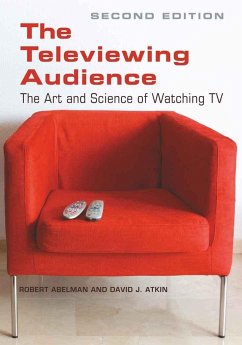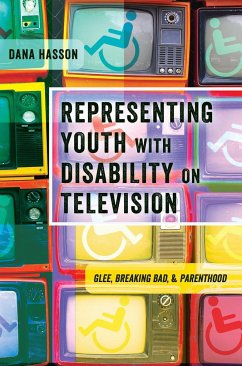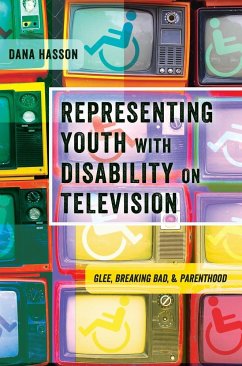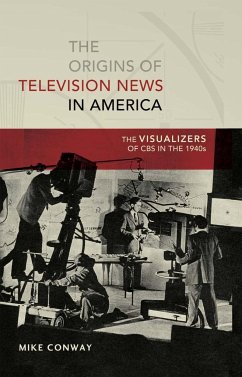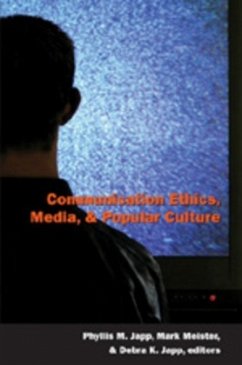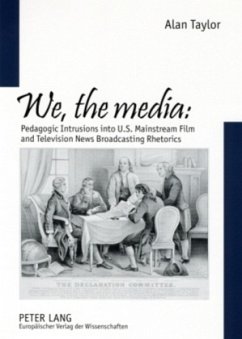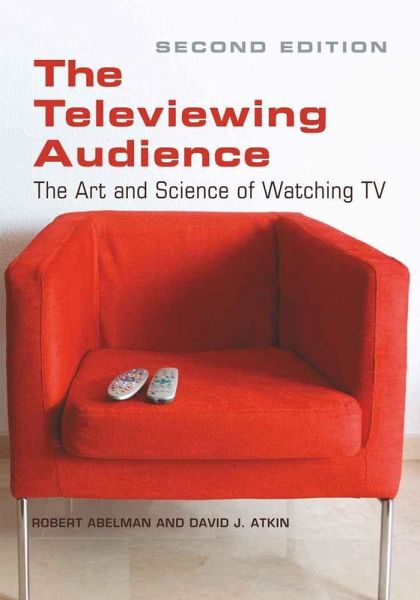
The Televiewing Audience
The Art and Science of Watching TV

PAYBACK Punkte
0 °P sammeln!
This book won the Ohio Professional Writer's, Inc. 2014 Communication Competition AwardNow in its second edition, The Televiewing Audience is a user's guide for the only household appliance that doesn't come with one. Watching television seems relatively effortless - it is, after all, a major form of entertainment in the U.S. and overseas - yet this book argues that there is nothing simple about watching television; it is a learned activity which is in a constant state of revision and upgrading. Now more than ever, televiewing requires the generation and application of critical thinking to gui...
This book won the Ohio Professional Writer's, Inc. 2014 Communication Competition Award
Now in its second edition, The Televiewing Audience is a user's guide for the only household appliance that doesn't come with one. Watching television seems relatively effortless - it is, after all, a major form of entertainment in the U.S. and overseas - yet this book argues that there is nothing simple about watching television; it is a learned activity which is in a constant state of revision and upgrading. Now more than ever, televiewing requires the generation and application of critical thinking to guide program selection, inform appreciation, generate greater pleasure, and inspire dialogue after consumption. This book is about becoming a more thoughtful and informed consumer, designed to shatter the anonymity of the televiewer, and to create a sense of community, for we rarely think of ourselves as instrumental in the televiewing experience or think of the experience as a shared event.
Designed for courses related to broadcasting, media effects, media literacy, and audience studies, this book provides a comprehensive overview of the ways in which television influences the way we think about ourselves and our culture. It places us center-stage in the extremely complicated, competitive, creative, and costly endeavor that is television.
Now in its second edition, The Televiewing Audience is a user's guide for the only household appliance that doesn't come with one. Watching television seems relatively effortless - it is, after all, a major form of entertainment in the U.S. and overseas - yet this book argues that there is nothing simple about watching television; it is a learned activity which is in a constant state of revision and upgrading. Now more than ever, televiewing requires the generation and application of critical thinking to guide program selection, inform appreciation, generate greater pleasure, and inspire dialogue after consumption. This book is about becoming a more thoughtful and informed consumer, designed to shatter the anonymity of the televiewer, and to create a sense of community, for we rarely think of ourselves as instrumental in the televiewing experience or think of the experience as a shared event.
Designed for courses related to broadcasting, media effects, media literacy, and audience studies, this book provides a comprehensive overview of the ways in which television influences the way we think about ourselves and our culture. It places us center-stage in the extremely complicated, competitive, creative, and costly endeavor that is television.



